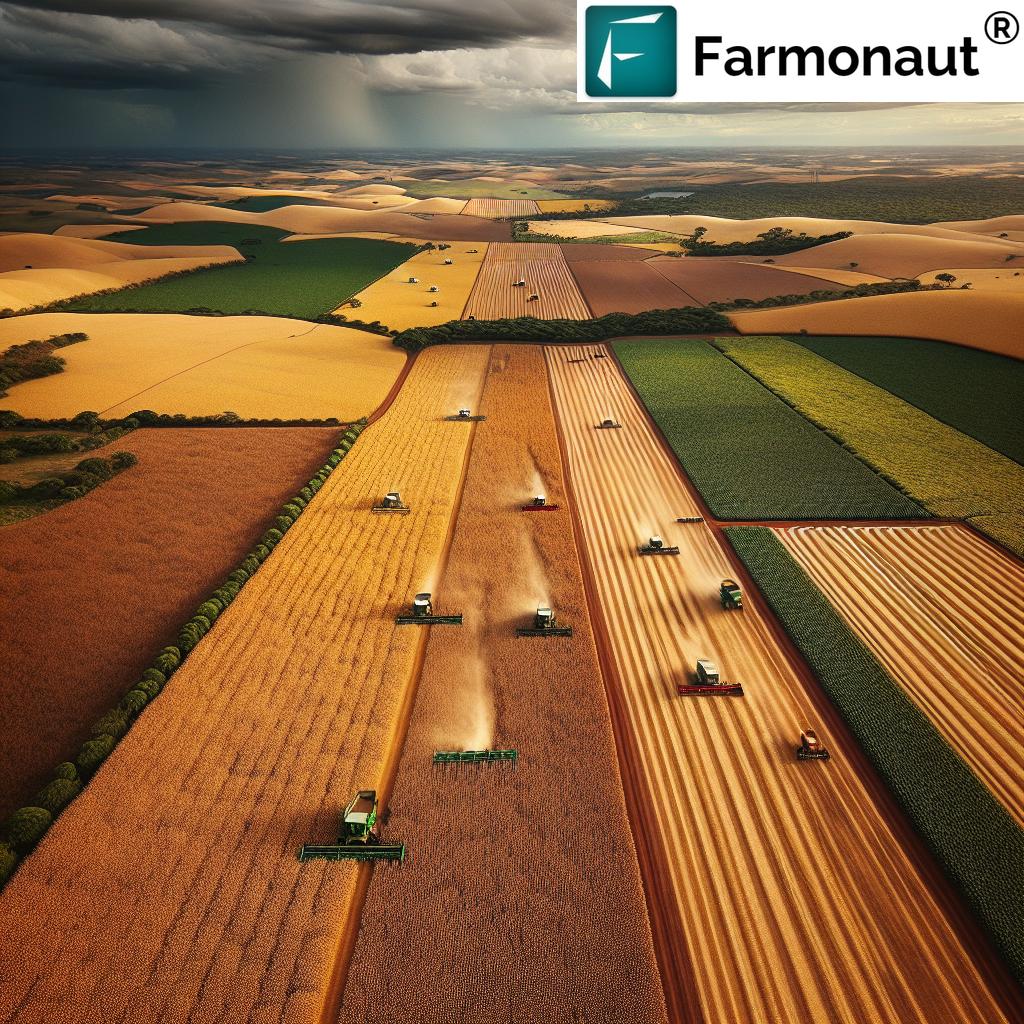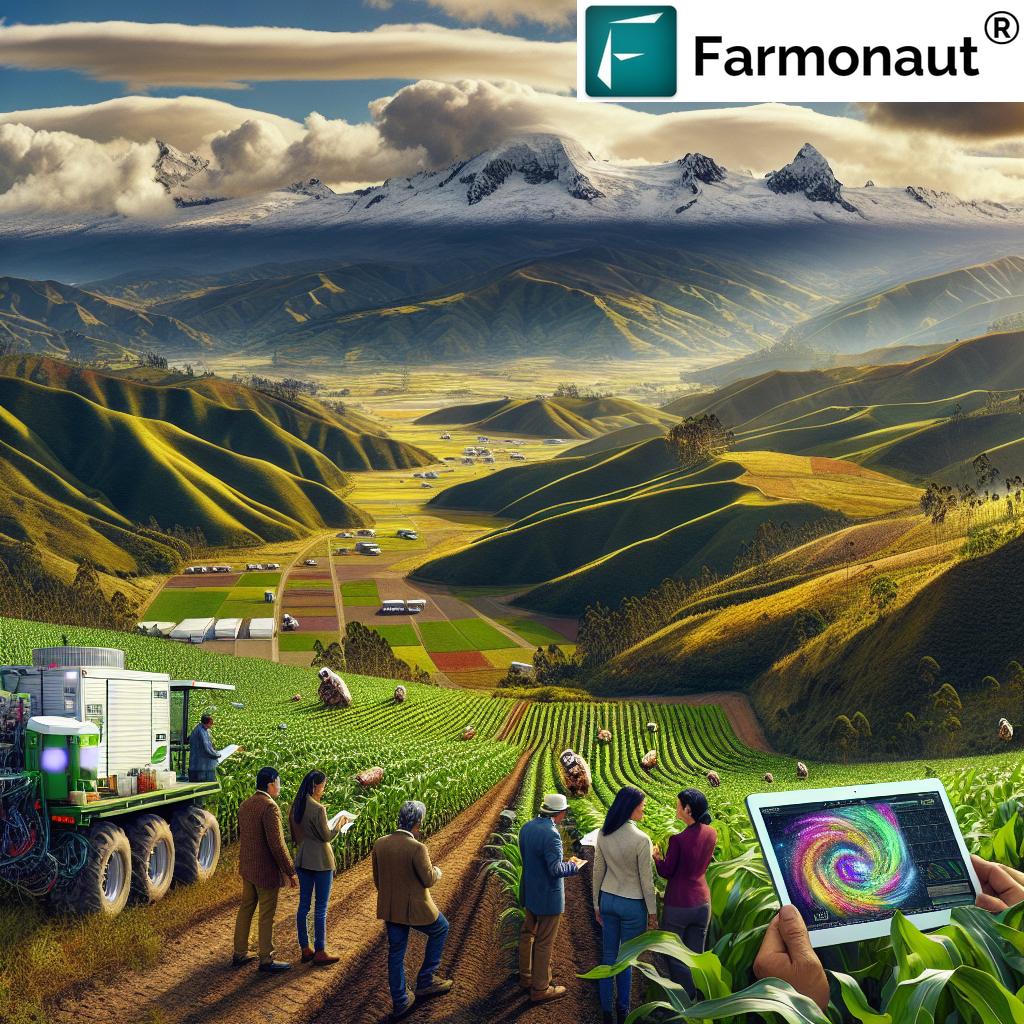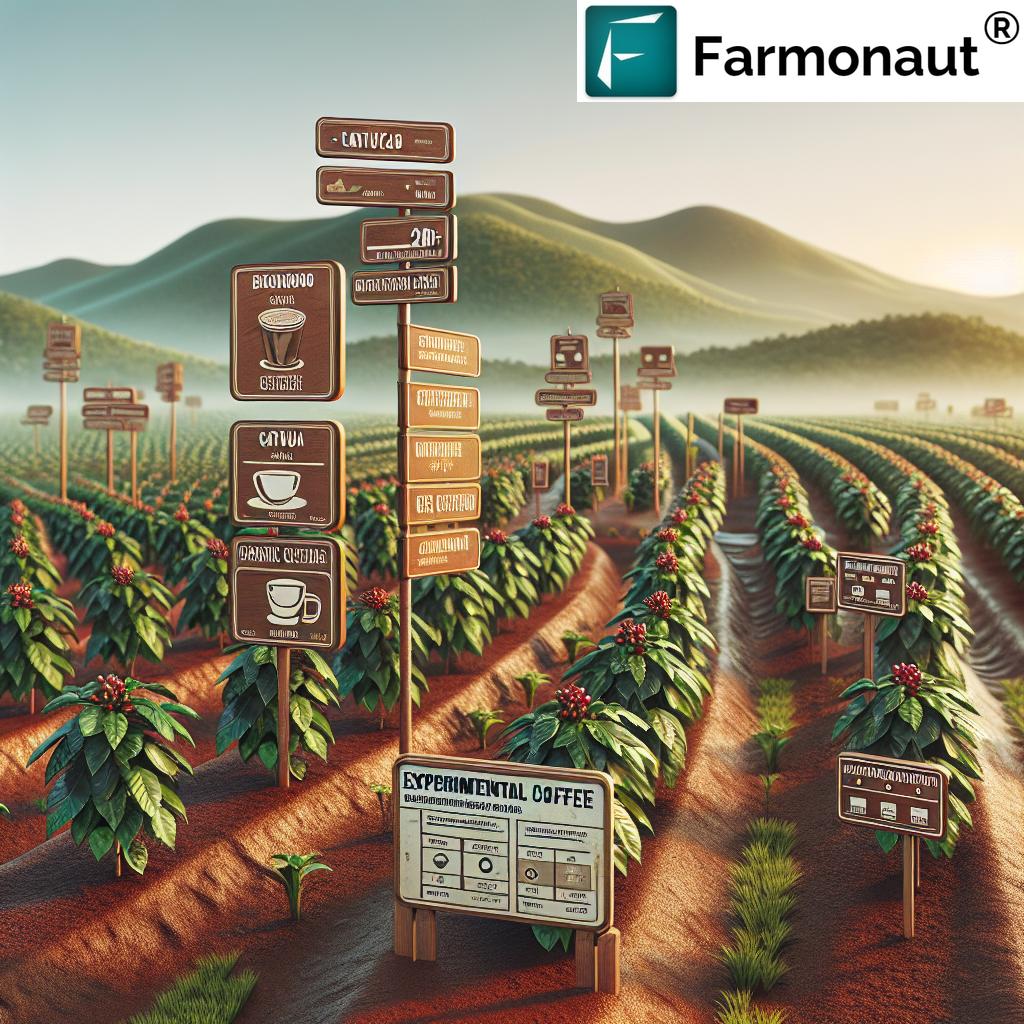Agriculture in Venezuela: 7 Powerful Opportunities for 2025
“Venezuela’s agriculture employs over 10% of its workforce, with climate-resilient crops gaining 15% more acreage by 2025.”
Summary: Agriculture in Venezuela – Challenges and Opportunities in 2025
Agriculture in Venezuela, once a backbone of its rural economy and a critical support for food security, faces significant challenges amid ongoing economic and political crises. In 2025, the future of the sector depends on leveraging the country’s geographic and climatic advantages to harness its true potential. With sustainable farming, modernization, and the adoption of innovation and technology, venezuela can pave the path for rural development, national self-reliance, and a resilient agricultural future.
Venezuela’s Geographic and Climatic Advantage in Agriculture
Venezuela, traditionally known for its vast oil reserves, also possesses significant agricultural potential. The country’s wide range of ecosystems—from Andean highlands to the Llanos grasslands and dense rainforests—creates a unique natural platform for diverse crops. Its location in the northern part of South America grants access to tropical climate zones in the lowlands and temperate conditions in the mountainous areas. This diversity enables the cultivation of both staple foods (such as maize, rice, cassava, and plantains) and high-value cash crops (coffee, cocoa, and various fruits and vegetables).
Such a climatic and geographic advantage places venezuela in a theoretically strong position for food production and export diversification. The varied zones are well-suited for climate-resilient agriculture, a necessity as the country adapts to new patterns of rainfall and recurring droughts in 2025.
Current Agricultural Landscape & Persistent Challenges
Despite a natural bounty, the agriculture of venezuela has been seriously hampered by multiple, persistent challenges:
-
Economic Turbulence:
Ongoing hyperinflation, instability, and mismanagement have severely impacted the sector, resulting in reduced farm yields and discouraged private investment. -
Scarcity of Inputs:
Seeds, fertilizers, modern machinery, and basic equipment are often scarce or unaffordable. This situation is compounded by restrictive policies and price controls. -
Deteriorating Infrastructure:
Lack of investment in rural roads, storage facilities, and irrigation systems limits efficient distribution and production. -
Outdated Farming Techniques:
Many farmers still operate small plots and rely on traditional methods. Such techniques limit scalability and leave communities vulnerable to climate variability. -
Land Tenure Issues:
Disputes and insecurity over land rights reduce motivation to invest in long-term, sustainable improvements. -
Rural Migration:
Harsh living conditions push the workforce toward urban centers, contributing further to low rural development.
As a result, the current state of agriculture in venezuela is fragile, making food security and poverty alleviation in rural areas some of the most critical national issues as of 2025.
Revitalization Efforts in Venezuelan Agriculture
Motivated by food shortages and increasing reliance on imports, efforts are underway to revitalize venezuela’s agricultural sector. The emphasis is shifting from unsustainable, input-intensive models to more resilient, community-based, and sustainable approaches:
- Agroecology and Climate-Smart Agriculture: These systems reduce input costs, conserve soil and water, and help farmers adapt to changing climate conditions. For example, intercropping and agroforestry are being piloted to improve soil health and crop yields.
- Improved Seed Varieties & Integrated Pest Management: Innovation here is key to better resistance against pests, disease, and extreme weather.
- Private Sector and Community Initiatives: Growing numbers of cooperatives and farmer associations help pool resources, improve market access, and strengthen rural voices in national economic conversations.
- Infrastructure Rehabilitation: Investments, though limited, are being directed toward critical projects like basic irrigation and storage, often with regional or international technical input.
- Cross-Border Trade Reforms: Streamlined trade with Colombia and other neighbors creates further avenues for exporting surplus crops, even as internal policies remain restrictive.
Technology, Innovation, and Satellite Solutions in Agriculture
The role of technology in the modernization of agriculture is growing, albeit with uneven access. Digital tools and real-time data play a transformative role by helping venezuelan producers overcome challenges — especially by addressing the scarcity of inputs and outdated farming methods.
Key Technological Trends in Venezuelan Agriculture of 2025
- Mobile Apps: Smallholders use mobile devices for weather forecasts, updated market prices, and extension services. This enables better on-field decision-making.
- Remote Sensing and Satellite Imagery: Tools like Farmonaut’s large-scale farm management app integrate multispectral images, empowering users to monitor crop health, soil conditions, and even manage resource use efficiently.
- AI-Based Advisory Systems: Advanced platforms, such as the Jeevn AI Advisory System from Farmonaut, enable customized recommendations based on real-time field status, boosting productivity and climate resilience.
- Blockchain Traceability: Transparency in agricultural supply chains is enhanced with product traceability tools, helping export-oriented producers add value, ensure quality, and meet global standards.
However, limited internet connectivity and lack of digital financial inclusion remain hurdles for full-grown adoption of these technologies, especially in remote rural areas.
7 Powerful Opportunities for Agriculture in Venezuela in 2025
With the right efforts, venezuela is poised to capitalize on seven major agricultural opportunities that align with global shifts towards sustainable and climate-resilient production. Here, we explore these opportunities and how they intersect with innovation, policy, and rural development.
“Sustainable farming practices in Venezuela could boost rural incomes by up to 20% and reduce soil erosion by 30%.”
1. Crop Diversification into High-Value and Climate-Resilient Crops
Shifting from a dependence on just a few staples, venezuela can increase resilience by growing a broader mix: cocoa, coffee, tropical fruits, and even emerging crops like quinoa and chia. This diversification reduces risk from market and climate shocks, while also creating new export possibilities in 2025.
- Regions: Andean Highlands, Cordillera de Mérida, and Amazon Basin
- Sustainability: Crop rotation maintains soil health and limits pests, requiring fewer chemical inputs.
2. Rehabilitation of Irrigation and Water Management Systems
Lack of modern irrigation has held back the sector. Large-scale upgrades make farms less vulnerable to drought, particularly in the Llanos grasslands and arid western zones. Precision irrigation (like drip and solar-pump systems) can drastically improve efficiency, reduce water waste, and stabilize yields.
- Benefit: Water installations may boost yields by 30-60% in affected regions.
- Learn how technologies such as carbon footprint monitoring can support sustainable water and land use planning.
3. Agroforestry and Integrated Landscape Management
Agroforestry (combining crops, trees, and sometimes livestock) revitalizes soils, controls erosion, and diversifies farm incomes, especially in rainforests and transitional zones like the Orinoco watershed. Adoption in 2025 puts venezuela at the forefront of sustainable climate adaptation while protecting biodiversity.
- Agroforestry can increase net farm income by 15-20% while reducing soil loss by a third.
4. Mechanization and Digital Transformation of Smallholder Farms
Even modest mechanization—from walk-behind tillers to mobile-based crop monitoring—lifts productivity for smallholders still relying on traditional methods. Satellite-based data systems like Farmonaut’s provide affordable, scalable oversight for both private farmers and government agencies.
- Fleet management solutions optimize the use and movement of agricultural machinery, reducing operational costs and equipment downtime.
- Digitization can shorten harvest-to-market time, growing profits by 10% and growing farmers’ resilience to climate variability.
5. Value Addition through Processing and Traceability
Adopting local processing—such as chocolate production from cocoa or specialty coffee roasting—captures more value within rural communities. Blockchain-enhanced traceability builds consumer trust and opens global premium markets.
- Value addition can double farm-gate prices for select commodities.
- Farmonaut’s traceability solutions allow supply chains to verify product origin, boosting reputation and regulatory compliance.
6. Access to Finance: Crop Loan and Insurance Solutions
Affordable agricultural lending and crop insurance remain limited due to weak verification and high risks. Satellite-based monitoring—as offered through Farmonaut’s crop loan and insurance verification services—helps banks validate claims in real time, broadening access to credit and risk management for farmers in volatile climates.
- Adoption could see up to 15% more rural farmers qualifying for loans and insurance.
7. Scaling Cooperative and Community-Led Agricultural Enterprises
Pooling resources via cooperatives empowers small farmers, increases their bargaining power, and improves access to inputs like quality seeds and technical training. Modern digital management platforms make these operations easier, more transparent, and scalable in 2025.
- Community-led approaches can raise collective output and income by at least 18% compared to isolated efforts.
Comparative Opportunities Table: Climate-Resilient Agriculture in Venezuela 2025
| Opportunity | Estimated Yield/Economic Value (2025) | Main Regions / Climatic Zones | Sustainability Impact | Key Challenges |
|---|---|---|---|---|
| Crop Diversification | Up to 40% yield increase in select areas; Export revenue ↑ by $350M | Andean Highlands, Amazon, Cordillera | Soil fertility; resilience to pests; less chemical use | Market linkages, input availability |
| Irrigation Improvements | Yield per ha ↑ 30-60%; Food security ↑ | Llanos, Maracaibo Lake Rim, Arid West | Water conservation; drought resilience | Cost, technical skills |
| Agroforestry | Income ↑ 15-20%; Soil loss ↓ 30% | Amazon, Transitional Rainforests | Carbon sequestration; biodiversity | Training, long-term planning |
| Mechanization & Digitalization | Productivity ↑ 10-35%; Profit ↑ 10% | Nationwide; Smallholdings | Resource efficiency | Cost barriers, digital literacy |
| Value Addition & Traceability | Farm prices ×2; Export Premiums | Cocoa/Coffee Belt, Urban-Fringe Farms | Reduced waste, trust in supply chain | Infrastructure, investment |
| Finance Access (Loans/Insurance) | Loan coverage ↑ 15%; Risk ↓ | All rural regions | Shock recovery, stability | Verification, awareness |
| Cooperative Scaling | Collective income ↑ 18% | Smallholder Clusters, Rural Outskirts | Social sustainability; shared resources | Governance, transparency |
Future Prospects for Agriculture in Venezuela: 2025 and Beyond
The road ahead for agriculture in venezuela is both promising and complex. Key factors that will determine long-term success include:
- Political stability and good governance—Providing the certainty and investment climate needed for both domestic and foreign stakeholders to invest confidently.
- Land and resource rights reform—Ensuring secure tenure so farmers have incentive for productivity-enhancing investments and sustainable management.
- Climate-smart policy incentives—Rewarding sustainable practices (such as carbon farming and efficient irrigation) with market access, training, or tax benefits.
- Digital inclusion—Expanding affordable internet and training rural communities to use digital, mobile, and satellite-based farm management tools.
If these conditions are met, venezuela’s rural sector could help stabilize the country’s economy, drive employment, and make the nation a regional leader in resilient, sustainable production.
How Farmonaut Supports Sustainable Agriculture in Venezuela
As a satellite technology company, we at Farmonaut are dedicated to empowering venezuela’s agricultural sector with smart, accessible and affordable tools for productivity, sustainability, and economic growth. Our platform offers several key solutions:
Real-Time Crop and Land Monitoring
Our satellite-based monitoring provides multispectral images for detailed crop health, soil moisture, and landscape assessment, supporting efficient resource utilization at scale.
AI-Based Advisory and Resource Optimization
Our Jeevn AI system delivers real-time advice by analyzing environmental data, weather forecasts, and satellite images for precision input management and risk reduction—crucial for 2025’s rapidly changing climate.
Blockchain-Based Supply Chain Traceability
We provide end-to-end traceability solutions for Venezuela’s agricultural producers. Blockchain secures integrity, compliance, and global competitiveness for crops like cocoa, coffee, and tropical fruits.
Fleet & Resource Management
Our fleet management platform optimizes the movement, safety, and usage of agricultural machinery, cutting costs and supporting scalable production for both private and community operations.
Environmental & Carbon Footprint Tracking
With real-time environmental monitoring tools, farmers and communities can actively track carbon emissions, water consumption, and adopt practices that enhance sustainability.
Crop Loan and Insurance Verification
We support financial institutions and insurance providers by verifying claims with satellite data, streamlining access to credit and safety nets for venezuela’s rural sector.
Explore all our APIs and developer documentation to seamlessly integrate smart, satellite-driven agriculture tools:
API access |
Developer Docs
For affordable, scalable support across agriculture, forestry, and rural development, try our end-to-end crop, plantation & forest advisory platform.
FAQ: Agriculture in Venezuela 2025
What are the main crops grown in Venezuela?
Agricultural outputs vary by region but key crops include maize, rice, plantains, cassava, coffee, cocoa, and numerous tropical fruits and vegetables.
What are the top challenges facing the agriculture sector?
Main challenges include economic instability, hyperinflation, input scarcity (such as seeds, fertilizers, and machinery), poor rural infrastructure, outdated farming methods, and land tenure uncertainties.
How is climate change impacting agriculture in Venezuela?
Extreme weather swings, irregular rainfall, and droughts are increasing, making climate-resilient agriculture and water management systems mission-critical for sustainable national food production.
What key opportunities exist for sustainable agriculture in 2025?
Key opportunities revolve around crop diversification, irrigation rehabilitation, agroforestry, mechanization, value addition, financial access, and scaling cooperatives for rural empowerment.
How can satellite technology help?
Satellite monitoring (like that provided by Farmonaut) delivers real-time, scalable insights into crop health and resource use, reducing costs, driving sustainability, and enhancing yields even in challenging or remote rural areas.
Where can I access Farmonaut’s products and solutions?
Farmonaut’s tools are accessible via web, Android, and iOS apps. Full suite information and integration APIs are available for agricultural enterprises in Venezuela.
Conclusion: Building Resilience in Venezuelan Agriculture
As we approach 2025, agriculture in venezuela stands at a pivotal crossroad. The sector’s future prospects are inextricably tied to sustainable approaches, innovation, and strong rural community networks. With sweeping geographic and climatic advantages, the country is uniquely placed to drive not only food security but also new economic diversification beyond oil dependence.
By harnessing advanced technologies, supporting private and cooperative sector leadership, and implementing robust policy reforms, Venezuela’s agriculture sector can elevate livelihoods, restore rural vibrancy, and lead the continent in climate-adaptive, sustainable food production.
We at Farmonaut remain committed to enabling this transformation with affordable, real-time, and holistic satellite and data-driven solutions for every stakeholder in the agriculture of venezuela.

 (
( (
( (
(









